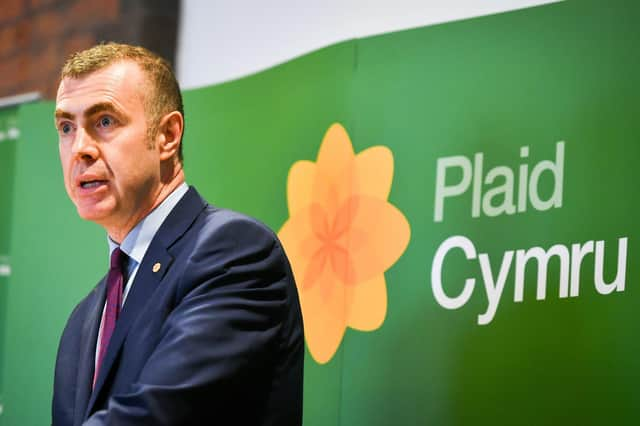Ruth Dudley Edwards: Why I’m rejoicing at the downfall of leaders of Celtic nationalism


Celtic nationalists of various kinds have rebranded themselves as progressive and use Brexit and now the coronation as an opportunity to denounce monarchist Little England dinosaurs —a strange insult to hurl at a country that impresses the world with the harmony of its race relations.
It is quite something to have three of the four great offices of state held by brown people of immigrant stock. Prime Minister Rishi Sunak’s parents are Southeast African-born Hindus: their son has the god Lord Ganesha watching over him in Downing Street, but he happily read from the New Testament in Westminster Abbey.
Advertisement
Hide AdAdvertisement
Hide AdThe mother of the foreign secretary, James Cleverly, is from Sierra Leone and the parents of Home Secretary Suella Braverman, of Indian origin, came to Britain in the 1960s from Kenya and Mauritius.
For good measure, the Chancellor of the Exchequer Jeremy Hunt’s wife is Chinese.
And you would have difficulty finding anyone in England who cared.
Yet the English are so used to being abused as racist that few would describe themselves as nationalist.
Advertisement
Hide AdAdvertisement
Hide AdIn his Times column last week, that fine political commentator Iain Martin made an impassioned plea to distinguish between nationalism and patriotism. The latter, he pointed out, had been around “in one form or another as long as human beings formed communities or pledged allegiance to a particular kingdom”. It was necessary to hold states together.
Nationalism, however, he reminded us, “is a newer and darker force” created in the late 18th century by the French Revolution and Napoleon's imperial ambitions. New nation states generally “began with high ideals and good intentions before becoming a highly destructive, revolutionary force that upends society”.
Those of us Irish who abhor political violence are all too aware how true that is.
But there is nothing wrong with being a patriot — a label that can be proudly worn even by recent immigrants. It simply means that you are proud of the country in which you live and you wish to celebrate it and work for its well-being.
Advertisement
Hide AdAdvertisement
Hide AdThat is very different from those negative grievance-mongering nationalists who flaunt their Anglophobia, trumpet their ill-thought-out progressive policies, and relish taunting unionists about the imminent break-up of the United Kingdom.
Which is why I’m rejoicing at the recent unmasking of flawed leaders of Celtic nationalism.
Nicola Sturgeon’s charisma and brilliant presentation skills had conned a vast number of Scots into believing she and the Scottish National Party actually knew how to run a country, even though every objective measurement showed shocking failure in, for example, education, health and even ferry replacement.
Now the fallen leader is expected to be arrested by the police investigating the sleazy financial scandal that has engulfed the SNP, made it a laughing-stock and destroyed the career of her chief executive husband. And her successor, the hapless Humza Yousaf, is splitting his party by trying to force through a crazy and dangerous commitment driven by extremists to make it easy for 16-year-olds to begin irreversible gender transition — a policy already adopted by Irish nationalism.
Advertisement
Hide AdAdvertisement
Hide AdIn Wales, Adam Price, the articulate media-friendly leader of Plaid Cymru, who had defenestrated his predecessor in a brutal leadership contest in 2018 on a promise to emulate the SNP by replacing Labour as the major party, had to resign when a report commissioned by his party accused it of being ridden with bullying, harassment and misogyny.
And while Sinn Fein are riding high electorally at present, they are losing ground to the centre in Northern Ireland and winning support in the Republic only by abandoning every principle except the pursuit of a united Ireland which the polls show there is no chance of achieving.
Like the other Celtic parties, they are short of experience and talent and still hopelessly dependent on massive English financial subsidies.
As Ian Martin concluded, the Union is stronger than it’s been for a decade and a half.
“Nationalism is not the way to build on that immensely positive development. As the coronation showed, patriotism is the positive force.”